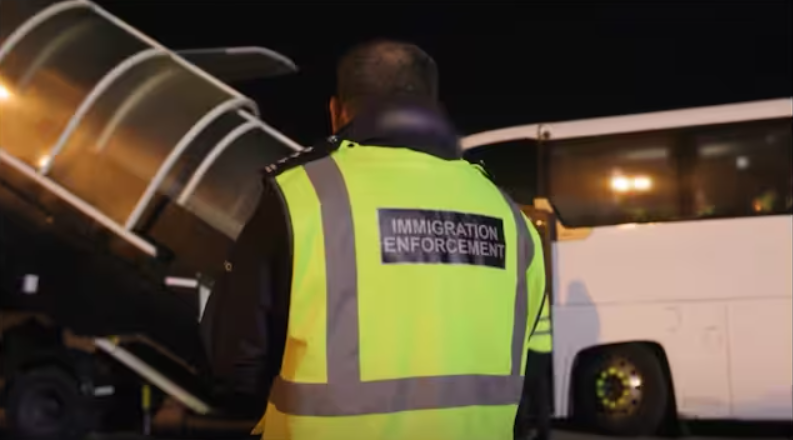
British Prime Minister Keir Starmer’s administration targeted Indian restaurants, nail bars, convenience stores and car washes in what the Home Office on Monday described as a “UK-wide blitz” on illegals working in the country, a style associated with US President Donald Trump’s crackdown on illegal immigration.
Home Secretary Yvette Cooper said the UK Home Office had a record-breaking January as immigration enforcement teams raided 828 premises, including nail bars, convenience stores, restaurants and car washes, marking a 48% rise compared to the previous January.
At least 609 people were arrested in these raids, demonstrating a 73% increase from just 352 the previous year. “Tackling illegal working plays a vital part in the Home Office’s system-wide approach to ending the promise of false jobs used by smuggling gangs to sell spaces on boats and taking down their business models as we restore order to the immigration system,” the Office said in a statement.
A significant proportion of last month’s activity took place at restaurants, takeaways and cafes as well as in the food, drink and tobacco industry. This included a visit to an Indian restaurant in Humberside, where seven people were arrested and four detained.
“The immigration rules must be respected and enforced. For far too long, employers have been able to take on and exploit illegal migrants and too many people have been able to arrive and work illegally with no enforcement action ever taken,” said Cooper.
Why Is UK Cracking Down On Illegal Immigrants?
According to BBC, there were more than 23,000 people crossing the English channel in small boats between the time when the Labour Party won in July last year and December, and more people are dying than ever before. This has sparked concerns about illegal immigration amid Trump’s crackdown in America.
Given the rising popularity of anti-immigrant Reform UK, the Labour government is adopting a “show, not tell” strategy and want to give off a sense of demonstrable toughness, visible muscularity to tackle immigration.
The government has also released a video showing the deportation of migrants for the first time as it removed nearly 19,000 people including failed asylum seekers, foreign criminals and immigration offenders from the UK since July 2024. A total of 1,090 civil penalty notices have been issued during that phase, with employers facing a fine of up to GBP 60,000 per worker if found liable.
The public must have confidence in the UK’s immigration system.
Through our Plan for Change, we have removed almost 19,000 people including failed asylum seekers, foreign criminals and immigration offenders from the UK since July 2024. pic.twitter.com/QY4tpQDqSP
— Home Office (@ukhomeoffice) February 10, 2025
“These figures demonstrate the commitment of my teams to crack down on those who think they can flout our immigration system. I hope it sends a strong signal that there is no hiding place from the law, and we will continue to ramp up our activity to ensure those involved face the full consequences,” said Eddy Montgomery, Director of Enforcement, Compliance and Crime.
The Home Office is also working upstream to deter people from entering the UK illegally by launching a new international campaign to debunk people smugglers’ lies. “Social media adverts went live in Vietnam in December and Albania in January, highlighting real stories from migrants who entered the UK illegally, only to face debt, exploitation, and a life far from what they were promised.”
UK’s Border Security Bill
The latest UK crackdown on illegal immigration as the Labour Party government’s Border Security, Asylum and Immigration Bill returns to Parliament for its second reading this week. The new legislation aims to smash the criminal gangs that Prime Minister Keir Starmer-led administration says undermine border security.
The Border Security, Asylum and Immigration Bill will grant law enforcement additional powers to take earlier and more effective action against organised crime gangs, including seizing mobile phones from people who come to the UK illegally before the point of arrest.









